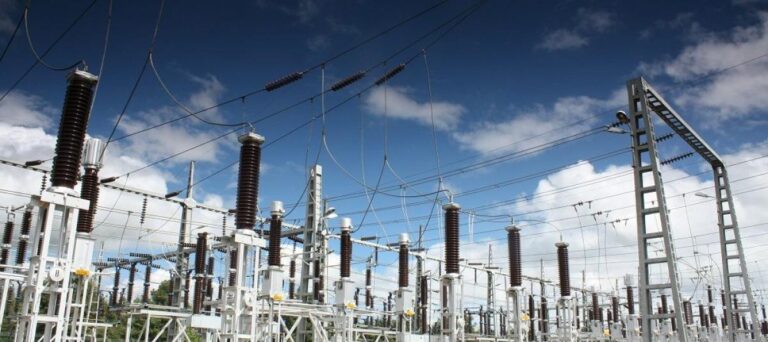Strategies for maintenance to optimize fuel performance

Currently, fuel efficiency has become a priority for fleet owners and individual drivers. Proper maintenance is key to preventing increased fuel consumption and ensuring optimal vehicle performance. Implementing maintenance strategies not only helps prolong the lifespan of the engine but also contributes to environmental sustainability and reduces operating costs. Below are various tactics that can facilitate fuel performance optimization.
The energy efficiency of vehicles is a crucial topic for reducing operating costs and minimizing environmental impact. Through a series of appropriate maintenance strategies, it is possible to maximize fuel performance. This article will explore various practices ranging from preventive maintenance of key components to efficient driving techniques that contribute to more rational fuel consumption.
Regular maintenance of key components
One of the most important aspects of optimizing fuel performance is to carry out regular maintenance of vehicle components. Elements such as air filters, spark plugs, and the injection system should be checked and replaced according to the manufacturer’s recommendations. For example, a dirty air filter can restrict airflow to the engine, resulting in less efficient combustion and higher fuel consumption.
Tire inspection and proper pressure
The pressure of the tires plays a crucial role in fuel efficiency. Deflated tires create greater rolling resistance, leading to increased fuel expenditure. Regularly checking and maintaining proper tire pressure optimizes fuel performance and also extends tire lifespan while enhancing driving safety.
Use of monitoring technologies
The implementation of monitoring technologies allows for more effective control over driver behavior and vehicle condition. Advanced systems can provide real-time information about fuel consumption, engine conditions, and driving practices, helping to identify areas for improvement and prevent issues before they become costly repairs.
Training for efficient driving
The way one drives significantly impacts fuel consumption. Therefore, driver training is fundamental. Teaching efficient driving techniques, such as avoiding sudden accelerations and maintaining a constant speed, can contribute to a significant reduction in fuel consumption. Additionally, using cruise control on the highway can be a practice that maximizes fuel economy.
Maintenance of the fuel system
The fuel system must undergo regular maintenance to ensure it operates optimally. This includes checking and changing fuel filters and performing periodic cleanings of the injectors. A clean and well-maintained fuel system ensures more efficient combustion, which translates to considerable savings in fuel consumption.
Weight reduction in the vehicle
Excess weight in the vehicle can negatively impact fuel performance. Therefore, taking steps to reduce weight, such as removing unnecessary items and opting for lighter equipment, is an effective strategy. Less weight means that the engine does not require as much effort to move the vehicle, which can result in lower fuel consumption.
Maintenance of alignment and suspension
Proper wheel alignment and a well-maintained suspension system are essential for efficient driving. If the wheels are misaligned, the vehicle tends to wear out faster and consumes more fuel to move. Checking and maintaining these systems not only improves fuel performance but also prolongs tire lifespan and enhances driving safety.
Monitoring weather conditions
It is important to be aware that weather conditions can influence fuel performance. For instance, excessive use of air conditioning on hot days can increase gasoline expenditure. Gaining insights into how external conditions affect fuel consumption can help adjust driving habits and choose the best times for trips.
By following these maintenance strategies, not only is fuel performance optimized, but sustainability and reduction of operating costs are also contributed to. Investing in appropriate maintenance practices can result in significant long-term benefits.
Optimizing fuel performance is essential to improve the energy efficiency of vehicles, and this is largely achieved through effective maintenance strategies. Regular maintenance not only prolongs the lifespan of vehicles but also prevents unnecessary wear on key components like air filters and injection systems. Ensuring that these components are in excellent condition can make a significant difference in fuel consumption.
Training drivers on efficient driving practices is also fundamental. Avoiding sudden accelerations and quick braking not only reduces mechanical wear but also helps maintain stable and efficient fuel consumption. Additionally, implementing monitoring technologies can provide real-time information about driving behavior, allowing for the identification of areas for improvement.
Another crucial aspect of maintenance is the proper care of tires. Maintaining optimal tire pressure can greatly improve traction and reduce rolling resistance, which in turn decreases fuel expenditure. Furthermore, performing periodic inspections of the fuel system will ensure it operates efficiently and utilizes fuel in the best possible manner.
In summary, adopting a series of appropriate maintenance strategies is key to optimizing fuel performance. By combining regular maintenance with training and the use of modern technologies, fleets can achieve higher levels of efficiency, which is essential today where savings and sustainability are priorities. These actions benefit not only fuel economics but also the overall health of the vehicle in the long term.





